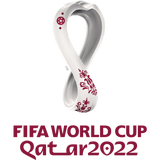
Russian clubs struggle to maintain World Cup momentum
MOSCOW (AP) — For Russia's top clubs, it's almost as if the World Cup never happened.
The national team made an incredible run to the World Cup quarterfinals, but Russia's clubs have struggled to show any momentum in European competitions this season.
Spartak Moscow was knocked out of the Champions League by Greek team PAOK Thessaloniki, while Zenit St. Petersburg scraped past Belarusian and Norwegian teams in Europa League qualifying. FC Ufa's Europa League debut ended last week in a frustrating loss to a Rangers team playing with nine men.
The transfer window was quiet, too.
Gone are the days when Zenit could spend more than 80 million euros ($92 million) in a single day to sign Brazil striker Hulk and Belgium midfielder Axel Witsel, as it did in 2012. The billionaire, local governments and state-owned companies which fund many leading clubs have tightened their purse-strings after a drop in the ruble made foreign deals more expensive.
Some of the Russian league's biggest names left this year as the star midfielder of Russia's World Cup squad, Alexander Golovin, quit CSKA Moscow for Monaco, Dutch forward Quincy Promes departed Spartak for Sevilla and Zenit sold Italian defender Domenico Criscito to Genoa.
Transfer spending has been modest, with the best-known arrivals being veterans trying to rebuild their careers.
There's Abel Hernandez of CSKA Moscow, who missed out on Uruguay's World Cup squad, plus Benedikt Hoewedes, a World Cup winner with Germany in 2014 and now at Lokomotiv Moscow, and Grzegorz Krychowiak, on loan at Lokomotiv because he is surplus at Paris Saint-Germain.
"We lost a lot of top players in the last years that went to other leagues and countries," said Alexander Zotov, the CEO of Russia's main players' union. "I'm not saying it deteriorated, but the level of football is not growing if you take superstar players away. But if they keep the atmosphere among the fans, you can see the games played in full capacity stadiums, the game changes and they drive the energy to the players. Really, it's another game."
Provincial teams in the second division are attracting club-record attendances to their gleaming World Cup stadiums, typically locals who couldn't make it to a World Cup game.
Rotor Volgograd, Mordovia Saransk and FC Nizhny Novgorod are all averaging more than 23,000 spectators at their first few games this season, in some cases five or 10 times the typical crowd last year. In Kaliningrad and Sochi, the picture is less rosy, with average crowds of 10,000 and 8,500, respectively.
The challenge now is to maintain that World Cup buzz through the winter, and to pay for the costly stadiums.
For Mordovia to attract fans in one of Russia's poorer regions, it sells many tickets for as little as 100 rubles ($1.50), though the stadium is estimated to cost between 200 and 260 million rubles ($2.95 to $3.85 million) a year in maintenance.
Financial instability has long been a feature of Russian soccer. That was underlined when FC Tosno, last season's Russian Cup winner and one of the few smaller clubs in private ownership, shut down a month later, citing severe financial problems.
Zotov said players at Baltika Kaliningrad, a second-division club now playing at a World Cup stadium, have complained of unpaid wages and bonuses going back several months.
Despite the World Cup, running clubs "is not a priority" for the state companies and regional governments who dominate soccer, he said.
"There are still enthusiasts and people who work," Zotov said. "It's a matter of running the club properly and not doing crazy things and not signing crazy contracts."
Regional officials have begged the government for help paying for their arenas, but it seems corners have already been cut on maintenance. The lights went out at the new stadium in Samara last month because the company which built it had allegedly failed to pay the electricity bill for several months.
A campaign group founded by President Vladimir Putin has called for an inquiry into why an earth embankment at the stadium in Volgograd collapsed into a road during heavy rain on the day of the World Cup final, and why another stadium's roof leaks.
Despite the clouds gathering over parts of Russia's World Cup legacy, Zotov said it's a great lesson for how to market the game.
"The World Cup is a tournament that develops interest by itself because everybody has heard about it. You get into the hype. It overwhelms everybody," he said. "If you take the (Russian) Premier League, first division, you have to work on developing this interest among potential customers or fans that would come. They might be interested but they're not sure. You have to develop a story around the players, the competition between the teams, explain it, and make the stadiums also a fun place to visit."
